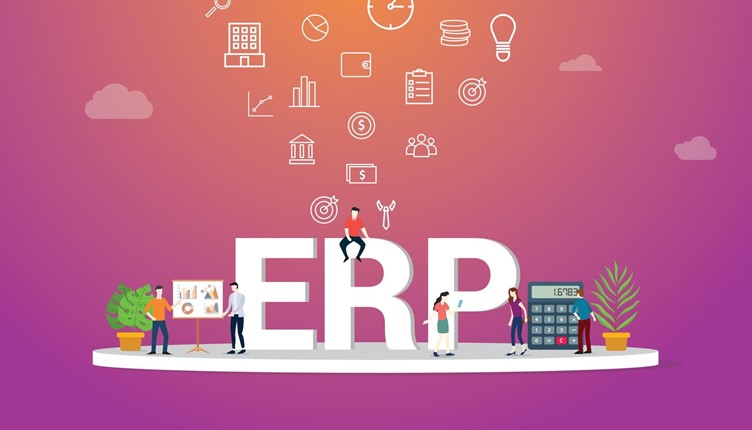
Today, Java is among the top five most popular programming languages. It covers over 30% of the global market share. That makes outsourcing Java development services highly demanded, especially when it comes to developing enterprise resource planning (ERP) software. Modern companies require effective applications making their business processes smoother and not affecting functions and speed simultaneously. Fortunately, Java can satisfy these needs thanks to a compiled single-module system.
Such a situation promotes software development companies like Exoft to cooperate with organizations from different industries to create robust Java-based ERP software. That is because Java is incredibly quick and serves as avant-garde in terms of memory management. So what are the key features of Java ERP systems, and what are the main challenges faced by them? Find the answers below.
What is ERP Software?
Often, running a business is a complicated and challenging task requiring detailed planning and resource allocation. With the recent digitalization of various industries, companies can perform their daily operations much more effectively.
In this case, ERP software is essential for each organization. It helps bring all the efforts of the company’s departments together, which, in turn, allows for better optimizing the integration. Thus, ERP systems make the unification of different business operations simple. That includes cost estimation, supply chain management (SCM), contract management, inventory management, facility management, reporting, workflow management, and payrolls.
Key Features of Java ERP Software
Here below, we have briefly described the most critical features of an efficient Java-based ERP system.
Reliability
The increase in adopting fast-paced technologies promotes businesses to implement ERP software that can ensure appropriate stability and reliability. Fortunately, Java offers that.
This programming language has been upgraded to follow rapid tech advancements for the next few years. Also, Java ERP systems are backed by relevant tests that leave no room for potential errors and do not require high maintenance.
Scalability
Building ERP systems on Java provides sufficient scalability. Its high-end performance brings power to software engineers since Java offers excellent code libraries, frameworks, and other critical tools.
That allows companies to benefit from software solutions handling traffic loads and addressing issues immediately. The proper ERP software helps cut costs and is advantageous in the long-term run.
User-Friendliness
The “write once, run anywhere” (WORA) approach used in Java allows for supporting all the developers’ needs. Organizations hire programmers specializing in building ERP systems to make them run adeptly regardless of the platform.
Java-based ERP tools created using Java Virtual Machine (JVM) perform on Windows, Linux, and macOS. Thus, developers find it convenient to analyze the application’s behavior on various platforms and determine the areas for further improvement.
Better Performance
Java ERP systems have a structure depending on a multi-threading system. That allows them to work with no discrepancy and provides less memory consumption.
Therefore, Java ERP software serves as the most popular go-after alternative for different large enterprises and companies. They utilize such solutions to get the maximum possible advantages.
Versatile Libraries
Libraries are vital to each EPR tool since they help add extra functions, address software issues, and upgrade to new versions. Of course, Java has its own libraries containing everything necessary.
Do you need to integrate payment systems, deploy third-party apps, etc? Java has all sorts in place. Compared to other modern tech solutions, Java-based ERP software follows an in-depth approach that makes it widely used.
Smartphone Apps
High-quality software can run on both desktops and smartphones. With Java, businesses can utilize their ERP tools on cell phones and integrate them with numerous apps using Android SDK. Besides, Java-based ERP software can work on different platforms.
Challenges Faced by Java-Based ERP Systems
Although Java-based ERP tools are the best possible alternative for different industries, they still have to address some important challenges. Let’s name them below.
Security Issues
All companies aim to keep their information safe and secure. Thus, discovering various security-related threats provokes the inconvenience of utilizing the relevant ERP software. For instance, some Java rollouts, including Java 5/6/7 and Java Virtual Machine, have struggled with glitches in security aspects.
Moreover, even after continuous upgrades, the situation has not improved significantly. That makes security one of the biggest problems when it comes to using Java-based tools. After all, many researchers, software engineers, and experts do not recommend implementing such software since it opens room for potential malicious attacks by cybercriminals.
Poor Architecture
The bad news is that Java creators did not design it to ensure compatibility with cloud-based architecture. At the same time, the cloud environment serves as an integral component of robust ERP software. Since Java lacks such a critical aspect, it forces users to find other alternatives.
Excessive Runtime
One of Java’s disadvantages is a lack of proper performance, especially when comparing it to other popular programming languages. Developers need to spend much more time executing a necessary task in abstraction. That is because they must convert Java’s high-level codes into a relevant language the machine deals with.
Memory Problems
Software engineers often criticize Java’s Garbage Collectors because it affects JVM functions. At the same time, that has a negative impact on the general performance of ERP software. Such a situation occurs as the Garbage Collector keeps the information companies do not need to use.
Thread Deadlocks
With Java, developers can facilitate better synchronization between threads. That allows for resolving numerous complications. However, if programmers use the relevant threads in excess, they start affecting the user interface (UI) and decreasing the loading speed. In turn, that leads to the creation of gridlocks, which requires a lot of time to address the issue. Also, that contributes to the tasks’ delays.
Conclusion
To conclude, companies suffer from not having a robust ERP solution. Although managing various business operations requires a lot of effort in all departments, these actions related to such differentiated departments are combined to achieve the defined objectives. That is where Java-based ERP software comes in handy.
The custom-made ERP tool integrated with your organization’s legacy apps will allow for boosting performance significantly. Of course, the expenditures on building the relevant system can be heavy, but they will return in the long run. Thus, with high-quality Java ERP software, you will understand your business logic better and improve your core processes.


















